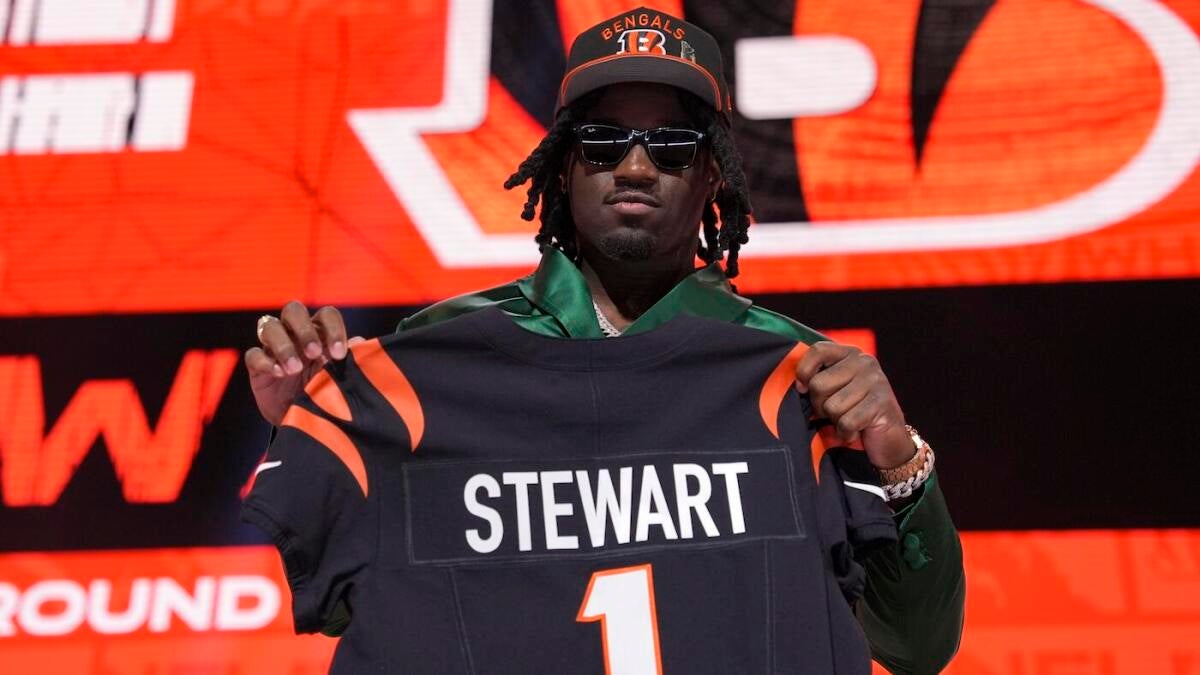The Endgame: Analyzing Shemar Stewart’s Fully Guaranteed Rookie Deal with the Bengals
Introduction: A High-Stakes Negotiation
The signing of Shemar Stewart by the Cincinnati Bengals marks the end of a protracted holdout that captivated fans and analysts alike. The defensive lineman’s four-year, $18.97 million rookie contract, fully guaranteed with a $10.4 million signing bonus, is a significant development in the NFL’s evolving contract landscape. This analysis explores the context of Stewart’s holdout, the specifics of the agreement, and its broader implications for the Bengals and the league.
The Holdout: Beyond the Bottom Line
Contract disputes in the NFL often extend beyond mere salary figures. Stewart’s holdout was reportedly rooted in disagreements over contract language, particularly guaranteed money and other clauses. Offset language, which determines a team’s financial responsibility if a player is cut and signs elsewhere, was likely a contentious point. Fully guaranteed contracts for first-round picks are becoming more common, but the finer details can still spark negotiations.
The Bengals, known for their conservative contract approach, faced a dilemma: adhere to tradition or meet market value to secure their first-round pick. Stewart’s absence during OTAs and training camp intensified pressure on both sides. The Bengals aimed for swift integration, while Stewart’s camp sought optimal terms. Public perception, often swayed by narratives of player greed versus team thrift, added complexity to the negotiation.
Decoding the Deal: A Fully Guaranteed Gamble
A fully guaranteed contract offers Stewart financial security and a clear sign of the Bengals’ commitment. It ensures he receives the full $18.97 million, barring serious off-field issues, reducing the risks inherent in a physically demanding sport. For the Bengals, this deal is a calculated gamble. It reflects their confidence in Stewart’s potential but also locks them into a significant financial commitment, even if his performance falls short.
The $10.4 million signing bonus, prorated for salary cap purposes, further sweetens the deal for Stewart. For the Bengals, it represents a substantial upfront investment. This financial commitment will influence future roster decisions, as they must account for guaranteed money in their long-term planning.
The Bengals’ Perspective: Shifting Contract Strategies
Historically, the Bengals have prioritized fiscal conservatism, often avoiding fully guaranteed contracts. However, rising player salaries and increased agent leverage may be pushing them to adapt. The Stewart deal, following a similar agreement with Amarius Mims last year, suggests a strategic shift. The Bengals are recognizing the need to offer competitive terms to attract top talent, particularly in the first round.
The NFL’s Collective Bargaining Agreement (CBA) governs rookie contracts, setting parameters for salaries and lengths. While the CBA limits negotiation scope, the Bengals’ willingness to fully guarantee Stewart’s deal indicates a growing flexibility in their approach to securing elite players.
Implications for the Future: Setting a New Standard
The Stewart deal could influence future rookie negotiations across the league. Player agents will likely cite this agreement as a benchmark, particularly for first-round picks. If more teams adopt fully guaranteed contracts for top draft choices, it could become the new standard, increasing the financial commitment required to secure elite talent.
However, the Stewart deal’s specifics—such as the Bengals’ urgency to avoid training camp disruption and their confidence in his potential—may not apply universally. Future negotiations will depend on various factors, including draft position, team finances, and market conditions. The Bengals’ decision may signal a trend, but its broader impact remains to be seen.
The On-Field Impact: Stewart’s Performance Under Scrutiny
The success of the Stewart deal hinges on his on-field performance. The Bengals are investing heavily in his potential to bolster their defense. As a highly touted prospect from Texas A&M, Stewart possesses the physical tools to become a dominant defensive lineman. However, he must quickly adapt to the Bengals’ scheme, refine his technique, and consistently perform at a high level against NFL competition.
The pressure is on Stewart to justify the team’s investment and prove the holdout was worthwhile. His performance will not only determine his own future but also influence how rookie contracts are negotiated in the coming years.
Conclusion: A Calculated Risk with Far-Reaching Consequences
Shemar Stewart’s fully guaranteed rookie deal with the Bengals encapsulates the complexities of NFL contract negotiations. It underscores the importance of guaranteed money, the evolving strategies of teams and agents, and the potential impact on the league’s financial landscape. The Bengals’ decision to fully guarantee Stewart’s contract signals a possible shift in their approach to player acquisitions, reflecting a broader trend in the NFL.
Whether this gamble pays off remains to be seen. Stewart’s performance will be closely watched, as it will determine his own trajectory and influence future contract negotiations. The Bengals have taken a calculated risk, and the stakes are high. All eyes are now on Shemar Stewart as he embarks on his NFL journey, a journey that could redefine the future of rookie contracts in the league.











